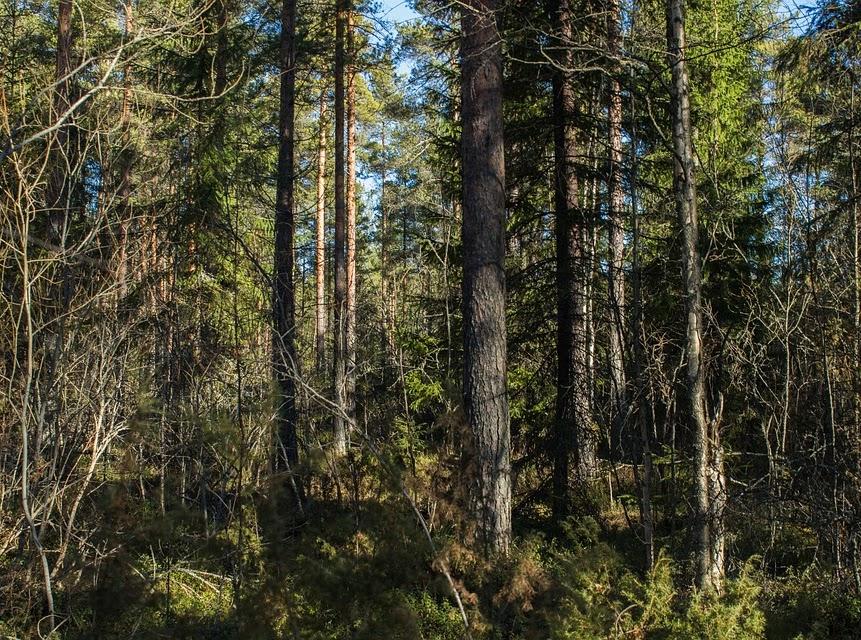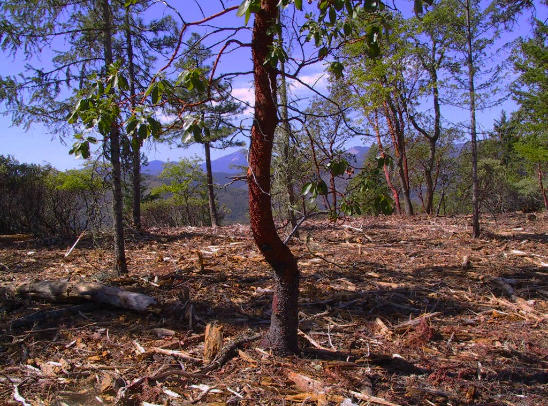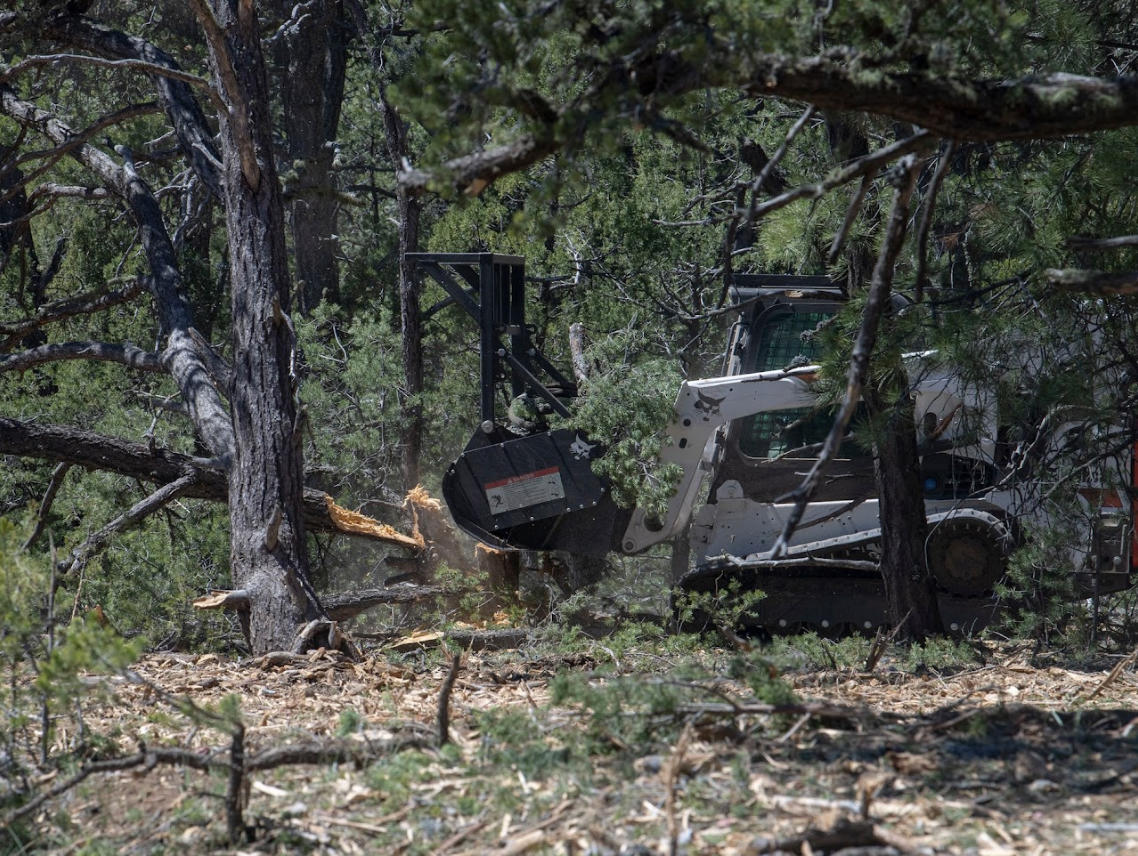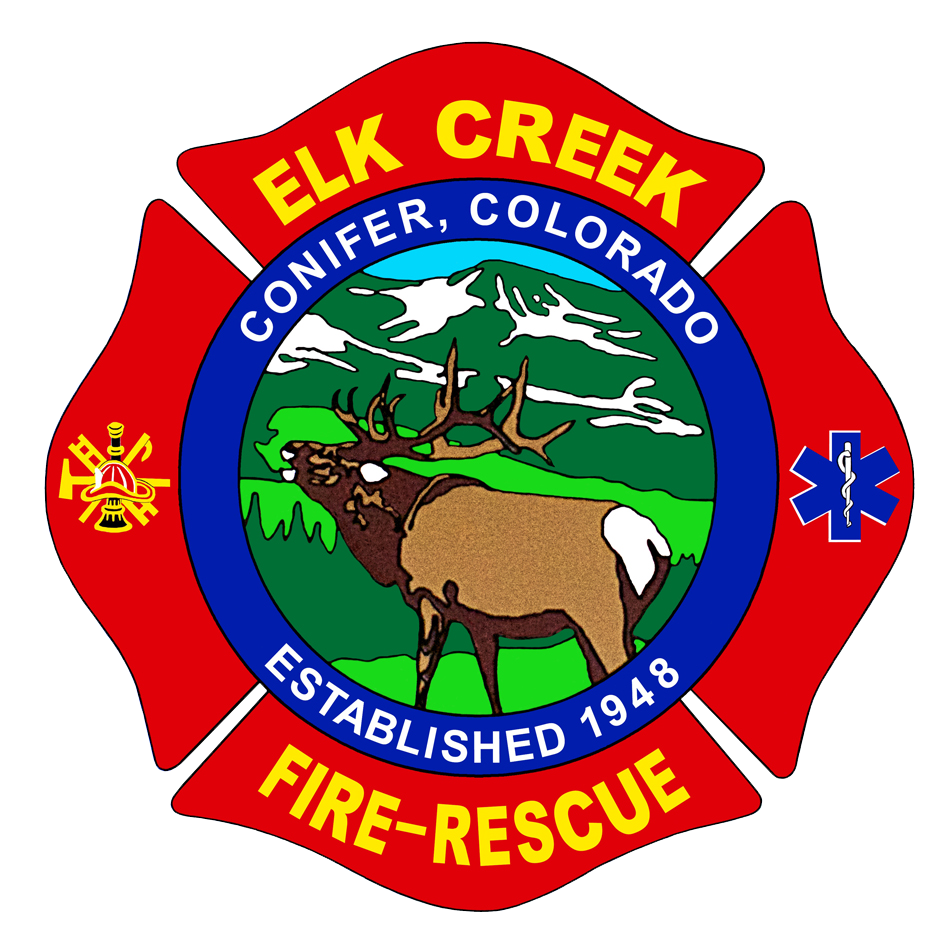Chips and Mulch
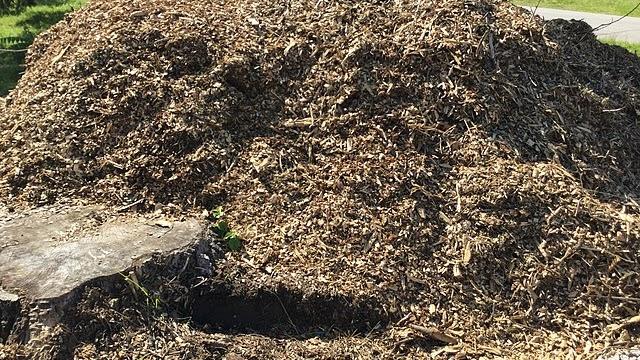
What is mulch?
Mulch is a protective covering (as of sawdust, compost, or paper) spread or left on the ground to reduce evaporation, maintain even soil temperature, prevent erosion, control weeds, enrich the soil, or keep fruit (such as strawberries) clean.
Where Not To Use Mulch
We discourage homeowners from using mulch and planting within 5 feet of their homes and other structures (garages, sheds, etc.). During a wildfire event, the ember shower that can proceed a main fire front can ignite organic materials around and on your home. Mulch creates a great trap for catching and encouraging these embers to smolder and burn. For more information on defensible space and home hardening click HERE(opens in a new tab).
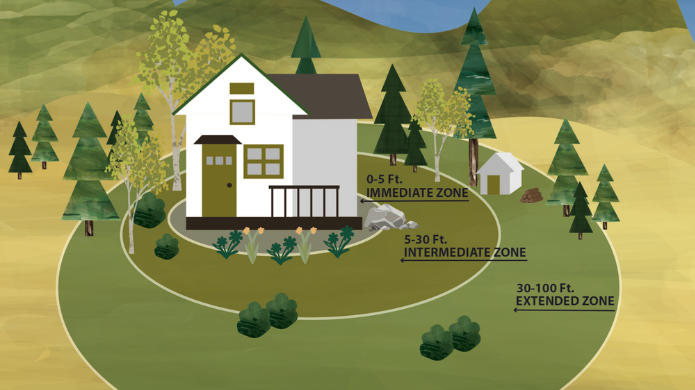
The Benefits Of Mulch
Mulch can be essential to the survival of your landscape during a drought. Mulch will limit the amount of moisture that can evaporate from your soil, in turn reducing the need to water your plants and vegetation. Mulch improves the quality of your soil by breaking up clay and allowing better air and water movement through soil. Mulch provides nutrients to sandy soil and improves its ability to retain water. Mulch acts a retaining layer to soil keeping it cooler in the summer, inversely mulch keeps soil temps warmer in the winter through the process of decomposition. Mulch keeps weeds down and weeds that do grow are much easier to remove.
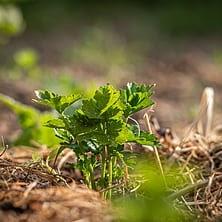
- Before applying mulch, remove all weeds and water the soil thoroughly.
- Replace grass under trees with mulch to minimize competition for water & nutrients.
- Keep mulch 6-12 inches from the base of trees and shrubs.

- Apply 2-4" of mulch in all planting areas. Finer mulches (1/2" & smaller) should be applied no more than 2" deep. Coarser mulches like bark and wood chips can be applied up to 4" deep.
The Elk Creek Fuels Crew offers free mulch from the Community Chipping Program.
If you would like to learn more or to schedule to have wood chips delivered, please click HERE.
Taking Mulch One Step Further
